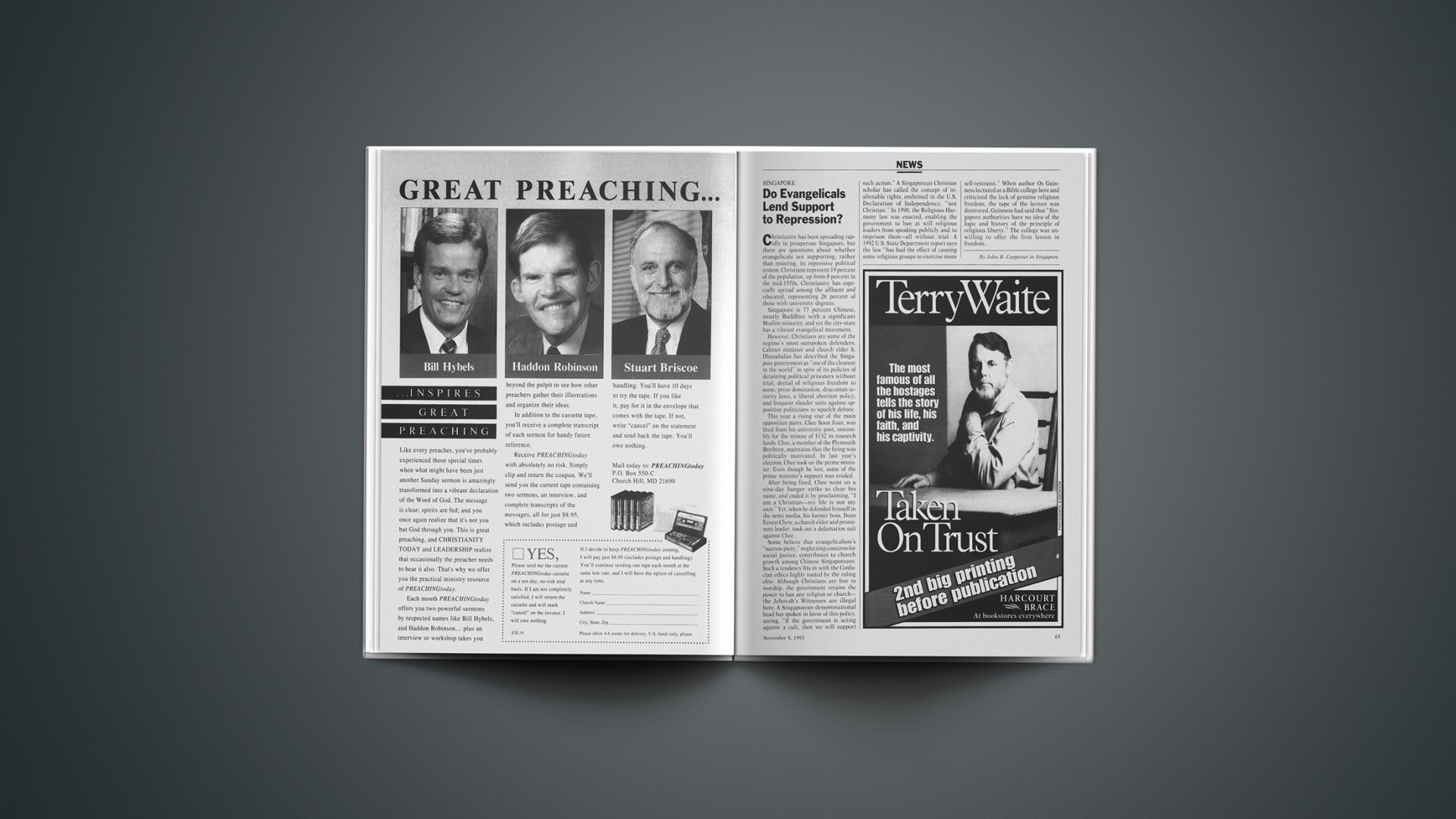Christianity has been spreading rapidly in prosperous Singapore, but there are questions about whether evangelicals are supporting, rather than resisting, its repressive political system. Christians represent 19 percent of the population, up from 8 percent in the mid-1970s. Christianity has especially spread among the affluent and educated, representing 26 percent of those with university degrees.
Singapore is 77 percent Chinese, mostly Buddhist with a significant Muslim minority, and yet the city-state has a vibrant evangelical movement.
However, Christians are some of the regime’s most outspoken defenders. Cabinet minister and church elder S. Dhanabalan has described the Singapore government as “one of the cleanest in the world” in spite of its policies of detaining political prisoners without trial, denial of religious freedom to some, press domination, draconian security laws, a liberal abortion policy, and frequent slander suits against opposition politicians to squelch debate.
This year a rising star of the main opposition party, Chee Soon Juan, was fired from his university post, ostensibly for the misuse of $132 in research funds. Chee, a member of the Plymouth Brethren, maintains that the firing was politically motivated. In last year’s election, Chee took on the prime minister. Even though he lost, some of the prime minister’s support was eroded.
After being fired, Chee went on a nine-day hunger strike to clear his name, and ended it by proclaiming, “I am a Christian—my life is not my own.” Yet, when he defended himself in the news media, his former boss, Dean Ernest Chew, a church elder and prominent leader, took out a defamation suit against Chee.
Some believe that evangelicalism’s “narrow piety,” neglecting concerns for social justice, contributes to church growth among Chinese Singaporeans. Such a tendency fits in with the Confucian ethics highly touted by the ruling elite. Although Christians are free to worship, the government retains the power to ban any religion or church—the Jehovah’s Witnesses are illegal here. A Singaporean denominational head has spoken in favor of this policy, saying, “If the government is acting against a cult, then we will support such action.” A Singaporean Christian scholar has called the concept of inalienable rights, enshrined in the U.S. Declaration of Independence, “not Christian.” In 1990, the Religious Harmony law was enacted, enabling the government to ban at will religious leaders from speaking publicly and to imprison them—all without trial. A 1992 U.S. State Department report says the law “has had the effect of causing some religious groups to exercise more self-restraint.” When author Os Guinness lectured at a Bible college here and criticized the lack of genuine religious freedom, the tape of the lecture was destroyed. Guinness had said that “Singapore authorities have no idea of the logic and history of the principle of religious liberty.” The college was unwilling to offer the first lesson in freedom.
By John B. Carpenter in Singapore.










